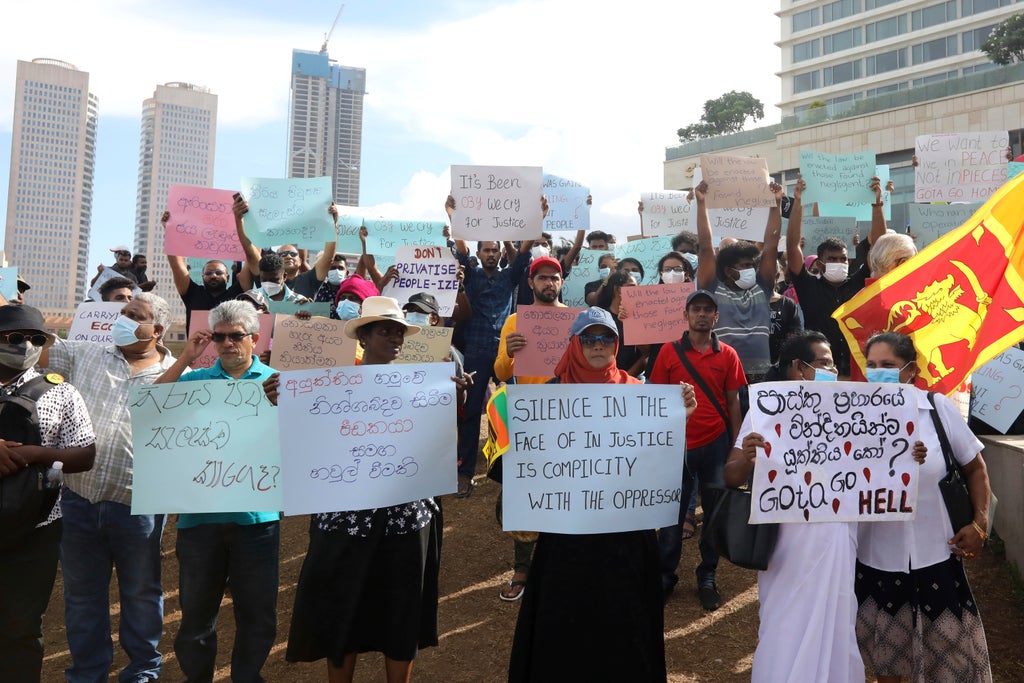
Sri Lanka's president appointed a new, 17-member Cabinet on Monday as he and his powerful family seek to resolve a political crisis resulting from the country's dire economic state.
The appointments follow weeks of protests over fuel and food shortages and demands that President Gotabaya Rajapaksa and his government resign.
The president's older brother, Prime Minister Mahinda Rajapaksa, remains but some other relatives were dropped in what's seen an attempt to pacify the protesters without giving up the family's hold on power.
Many seniors and those facing corruption allegations were excluded from the Cabinet in line with calls for a younger administration.
The Cabinet resigned on April 3 after protests erupted across the country and demonstrators stormed and vandalized the homes of some Cabinet ministers.
Thousands of protesters were occupying the entrance to the president's office for a 10th day on Monday.
Opposition parties have rejected an invitation by Rajapaksa to form a coalition unity government while he and his brother would remain in power. Opposition parties have failed, meanwhile, to gain a parliamentary majority.
Sri Lanka is on the brink of bankruptcy, with nearly $7 billion of its total $25 billion in foreign debt due for repayment this year. A severe shortage of foreign exchange means the country lacks money to buy imported goods.
People have endured months of shortages of essentials like food, cooking gas, fuel and medicine, lining up for hours to buy the very limited stocks available.
Last week, the government said it was suspending repayment of foreign loans pending talks with the International Monetary Fund. Sri Lanka's Finance Minister Ali Sabry and officials left for talks with the IMF on Sunday. The IMF and World Bank are holding annual meetings in Washington this week.
Sri Lanka has turned to China and India for emergency loans to buy food and fuel.
Much public anger has been directed at Rajapaksa and his elder brother the prime minister. They head an influential clan that has held power for most of the past two decades.







